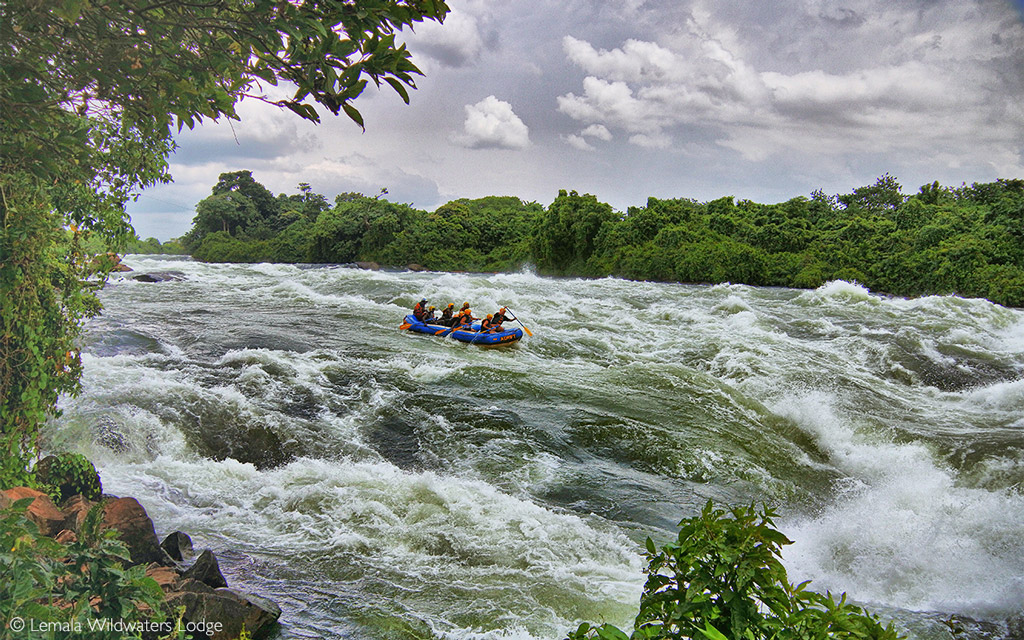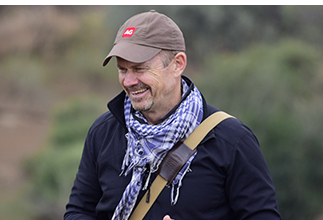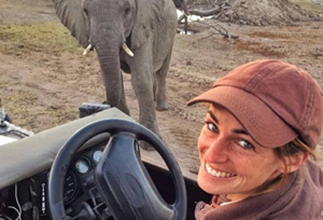
This is a copy of our weekly email newsletter. Subscribe here to receive the newsletter.

It’s THAT time again! Well, almost …
On the 1st of February, we open for entries to our annual Photographer of the Year and again hope for envy-inducing images of Africa’s extraordinary biodiversity bounty. During the height of the dry season last year I spent an unforgettable week on safari with the 2021 winners and their partners in Botswana’s Khwai Private Reserve – predator central. Our first story below is a PHOTOGRAPHIC CELEBRATION of that sojourn.
Jamie has penned an excellent intro to our second story below. I will only add that this is arguably the BIGGEST ISSUE standing between viable free-roaming wildlife populations and intact ecosystems on the one hand and their annihilation on the other. Do we really want Africa to follow the example set by the rich nations, and turn our landscapes into parking lots and our wildlife into managed herds?
Start your engines, ladies and gents – get those epic photos ready because February is just around the corner. Fantastic cash and travel prizes await 🙂
Keep the passion

Simon Espley – CEO, Africa Geographic
From our Scientific Editor

Do you ever find yourself reaching for a word in English (or any other language) to describe an everyday situation or emotion, only to find that there isn’t one? Sometimes, like with “Schadenfreude”, one language steps in where another fails. But other times, a little inventiveness is needed. Douglas Adams and John Lloyd created The Meaning of Liff – a “dictionary of things that there aren’t words for yet”. More recently, John Koenig began concocting the sombre Dictionary of Obscure Sorrows.
One of Koenig’s made-up words – occhiolism – jumped out at me: “n. the awareness of the smallness of your perspective, by which you couldn’t possibly draw any meaningful conclusions at all, about the world or the past or the complexities of culture”.
In my opinion, there is an unfortunate lack of occhiolism in the world on so many levels. However, in the context of this message, I am thinking of our second story in particular. Attempting to address human-wildlife conflict without involving local communities at every level is not only profoundly disrespectful, but it will also prove utterly fruitless. Read the story below on why it is so vital to take steps to understand the perspectives of those who live alongside wildlife rather than imparting our own assumptions.

Story 1
WINNERS’ SAFARI
https://africageographic.com/stories/khwai-photographers-paradise/
Khwai is every wildlife photographer’s dream – just ask our 2021 Photographer of the Year winners. Entries for 2022 open on 1 February
Story 2
CONFLICT
https://africageographic.com/stories/the-emotions-of-human-wildlife-conflict/
Emotions and cultural significance attached to wild carnivores dominate attempts to mitigate human-wildlife conflict
 TRAVEL DESK UPDATES:
TRAVEL DESK UPDATES:
Did you know that our travel & conservation club features 276 of Africa’s best lodges at which you can save up to 15% on the prices usually paid? And now you can search via a ‘map view’ (zoom in to select individual lodges), select for ‘non-malaria’ options and even change the quoted price currency? To access these features look out for relevant icons next to the search bar at the top of the screen. Join the club here.
Safari njema !
 DID YOU KNOW: Honeybee queens can live for up to three years, and worker bees live for just 200 days in winter and less than 40 days in summer
DID YOU KNOW: Honeybee queens can live for up to three years, and worker bees live for just 200 days in winter and less than 40 days in summer
 WATCH: FASCINATING behind-the-scenes look at filming nature timelapse (8:43)
WATCH: FASCINATING behind-the-scenes look at filming nature timelapse (8:43)
To comment on this story: Login (or sign up) to our app here - it's a troll-free safe place 🙂.![]()






